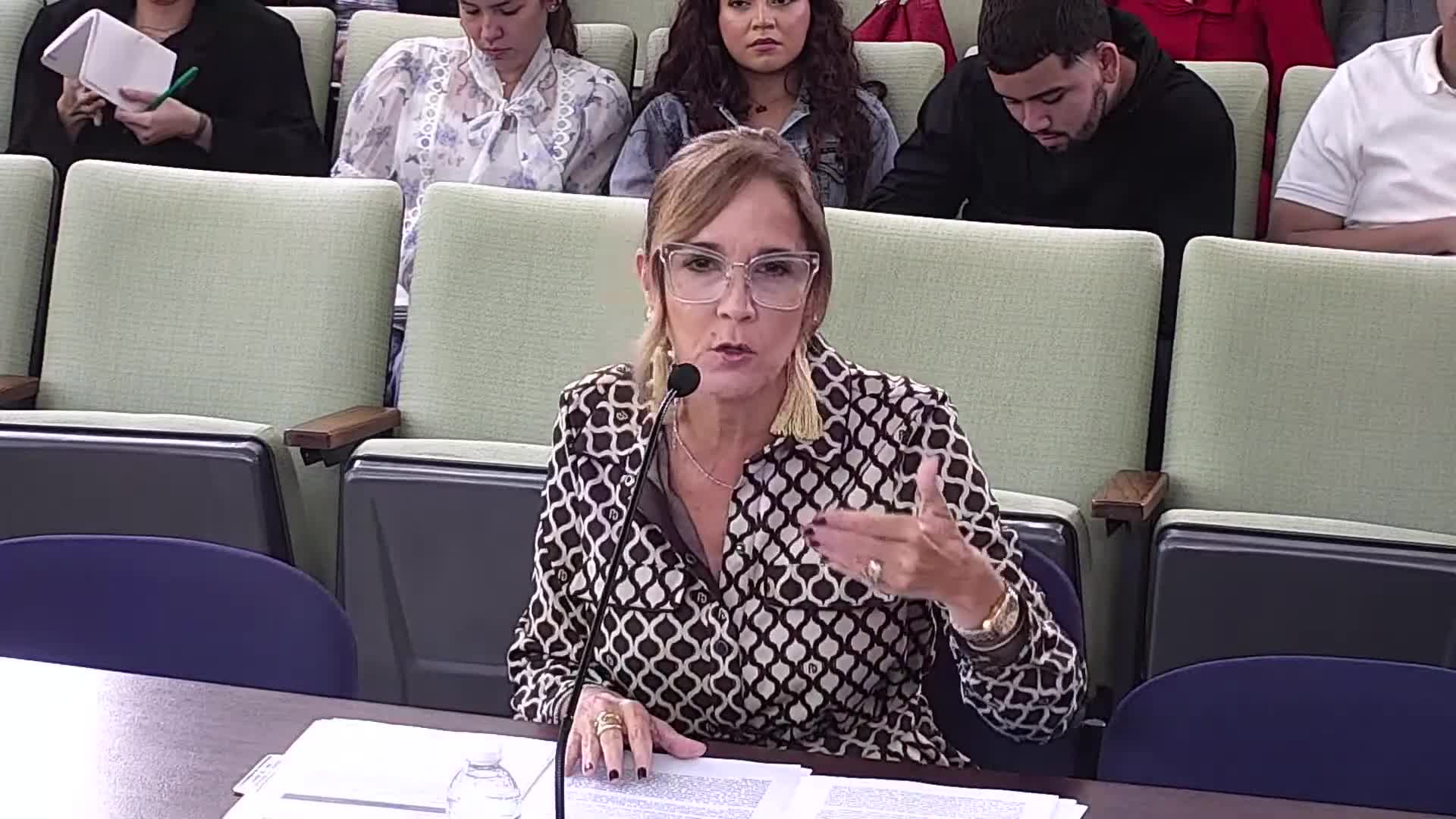Puerto Rico consumer agency backs ban on minimum card‑purchase amounts; retailers and regulators express concern
Get AI-powered insights, summaries, and transcripts
Subscribe
Summary
At an Oct. 15 hearing, the Department of Consumer Affairs backed PC 672, a bill to prohibit merchants from imposing minimum purchase amounts for card transactions. Retail representatives said the ban would harm small businesses; the Office of the Commissioner of Financial Institutions urged alignment with federal rules that allow a $10 credit-card
The House of Representatives Commission on Consumer Affairs held an afternoon session Oct. 15 on PC 672, a bill by Representative Yashira Lebrón Rodríguez to prohibit merchants from imposing minimum purchase amounts as a condition for accepting credit or debit card payments.
The Department of Consumer Affairs (DACO) testified in favor of the bill, arguing that minimums disproportionately affect low‑income consumers and older residents and create confusion when businesses claim to offer alternative payment methods that are not practically available. Retail groups and financial regulators urged caution and suggested alternatives.
Bill and context
PC 672 would make it unlawful for any person or business in Puerto Rico to require a minimum amount for card transactions (credit or debit). The measure would also authorize the DACO secretary to adopt implementing regulations and establish penalties for violations.
Why it matters
Supporters say the bill protects consumers who make small purchases and reduces incentives to force cash transactions. Opponents say mandated elimination of minimums — especially for credit cards, where federal rules permit a limited minimum — could impose losses on small merchants who face higher per‑transaction processing costs.
What witnesses said
Teresita María Santoni Bordon, presenting DACO’s written testimony on behalf of Secretary Valery Rodríguez Erazo, said the agency supports PC 672 and recommended that the legislature also appropriate resources for DACO so it can enforce the new prohibition. DACO’s submission noted that Law 150 of Aug. 4, 2008 (prohibiting surcharges for card use) and Law 42 of 2015 require multiple payment options but do not expressly forbid minimums. DACO also pointed to the federal framework: Regulation II (the Durbin amendment implementation) permits merchants to set a minimum of up to $10 for credit‑card transactions but forbids minimums for debit transactions.
Agnes Martínez, adviser to the Centro Unido de Detallistas, testified that small merchants would be most harmed if a blanket prohibition is imposed. Martínez reiterated earlier concerns: processing fees vary by card network and by merchant volume; small businesses cannot negotiate the lower merchant fees available to large chains. Martinez urged instead that lawmakers either preserve certain exceptions, give merchants time to comply, or consider other remedies such as caps on processing costs or expanded use of lower-cost electronic methods (for example, ATH Móvil).
Mónica Rodríguez and José Carrasquillo, representing the Office of the Commissioner of Financial Institutions (OCIF), said the regulator’s statutory responsibilities are limited to the solvency and conduct of supervised financial institutions. OCIF staff cautioned that any local law must be harmonized with federal standards (for example, the Durbin amendment and related federal rules on interchange and minimums) to avoid conflict and suggested a percent‑based approach rather than a fixed statutory ban to reflect merchant fee structures.
Quantitative and enforcement details discussed
Witnesses and legislators referenced several numeric points in the hearing record: Regulation 88‑51’s $50,000 annual revenue exemption for Law 42 compliance; a suggested increase to $100,000 for that exemption; the federal $10 cap on credit‑card minimums; and observed commercial practices of $5 or $10 minimums posted at small retail sites and gas stations. DACO told the committee it conducts routine inspections roughly 15 to 16 working days per month on average and agreed to provide records on inspection frequency and the number of fines issued under Law 42 over the past three years within five calendar days upon request from the committee.
Follow-up and next steps
The committee directed DACO to submit enforcement and inspection statistics and asked stakeholders to provide additional cost‑and‑fee data. No vote was taken; legislators said they will consider amendments to align any local prohibition with federal rules and to address the compliance burden on micro and small merchants.
